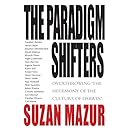Well, this’ll be interesting. Darwin vs. Boyle. From Suzan Mazur at Huffington Post:
—
In an attempt to do damage control, one of the organizers of the Royal Society paradigm shift meeting (not Denis Noble) sent me an email, which follows, asking that I stop referring to the Royal Society meeting as such. Why? Because he speaks for scientists who think they can control the scientific discourse as it was controlled at the time of Darwin.
They are embarrassed. They don’t want to be seen as sitting on scientific evidence and feeding the public old science — which they are — and so they circle the wagons and deride those outside the circle who dare to point out that there is crucial evidence they are conveniently tucking away, that they are gaming the system as a result. The arrogance is so flagrant that they can’t even remember it’s their job to serve science, and the public that funds science.
…
The world is awash with the latest scientific evidence that anyone and everyone can now access on the Internet. Science in that sense has been democratized and everyone who wants to be in the know can be — including the Royal Society organizing committee — and can have an educated opinion.
It’s beginning to look as if the responsibility for the success of the Royal Society meeting rests with its distinguished audience.More.
—
 Mazur, author of The Paradigm Shifters: Overthrowing “the Hegemony of the Culture of Darwin,” identifies a critical issue:
Mazur, author of The Paradigm Shifters: Overthrowing “the Hegemony of the Culture of Darwin,” identifies a critical issue:
Yes. Once upon a time, starting in the late Sixties, a group of American engineers accidentally invented the internet. They just wanted a pure stream of information, to ship their data around. Turned out, almost everyone wanted that, so here we are.
One thing the internet did was eliminate many traditional gatekeeper roles. One can no longer control whether a controversy matters by select coverage in elite journals or newspapers of record.
Not when more than half the people who care know the story anyway… All that such “control” means is that the real discussion moves elsewhere. Perhaps to places less easy to control.
If one doesn’t deal honestly with the information most people actually already know, it’s one’s own rep that is on the line. That goes for the Royal Society as much anyone else.
See also: Big Darwin will go down fighting (again): The hardest thing to get across to people raised on Darwinism is that it is not a mechanism but rather a metaphysic. It tells us that evolution has no ultimate goal, something only a metaphysic can do.
Horizontal gene transfer and symbiosis, by contrast, are mechanisms of evolution. They do not tell us whether or not evolution has an ultimate goal; they are mere descriptions of observed events. We need more of that.
Follow UD News at Twitter!